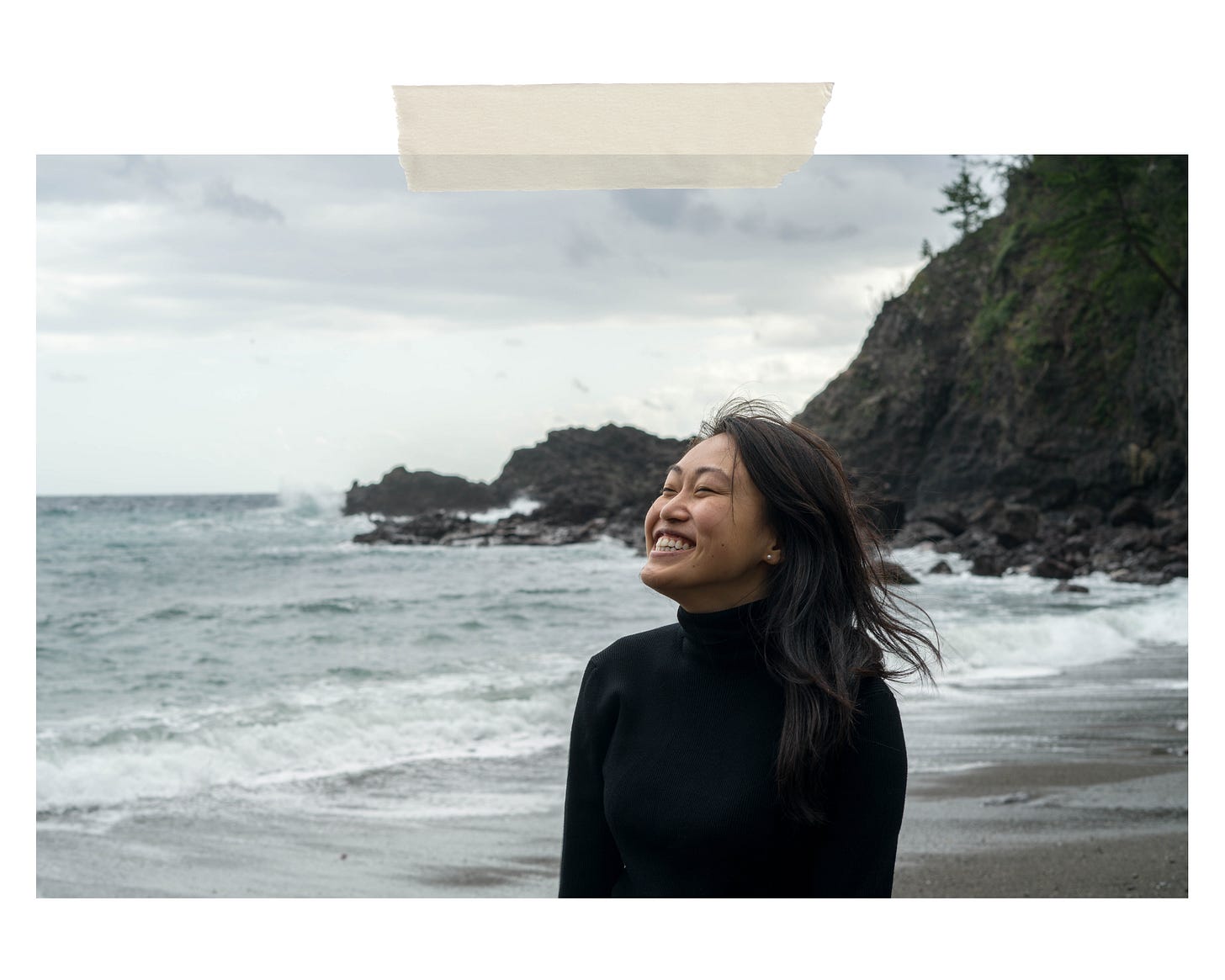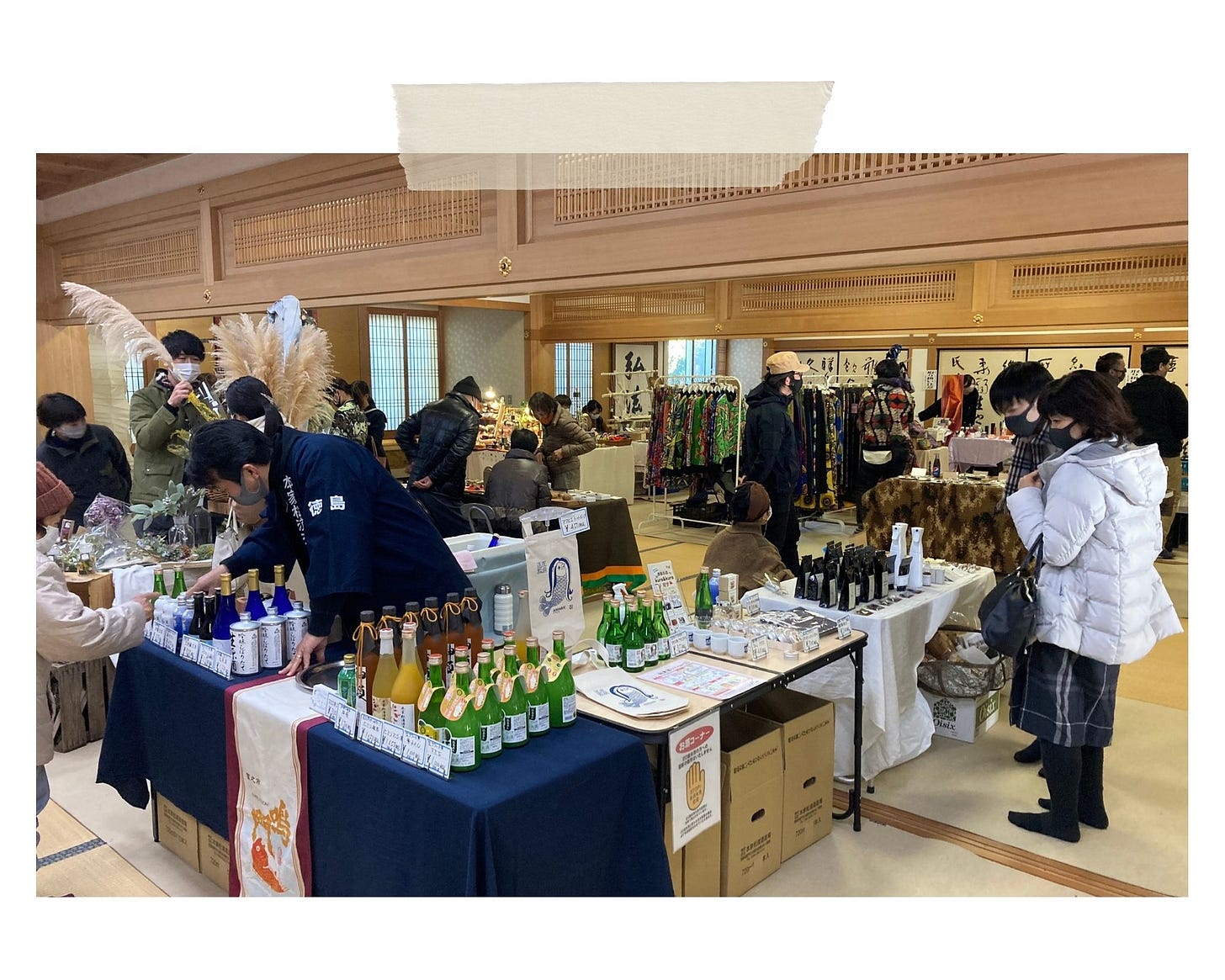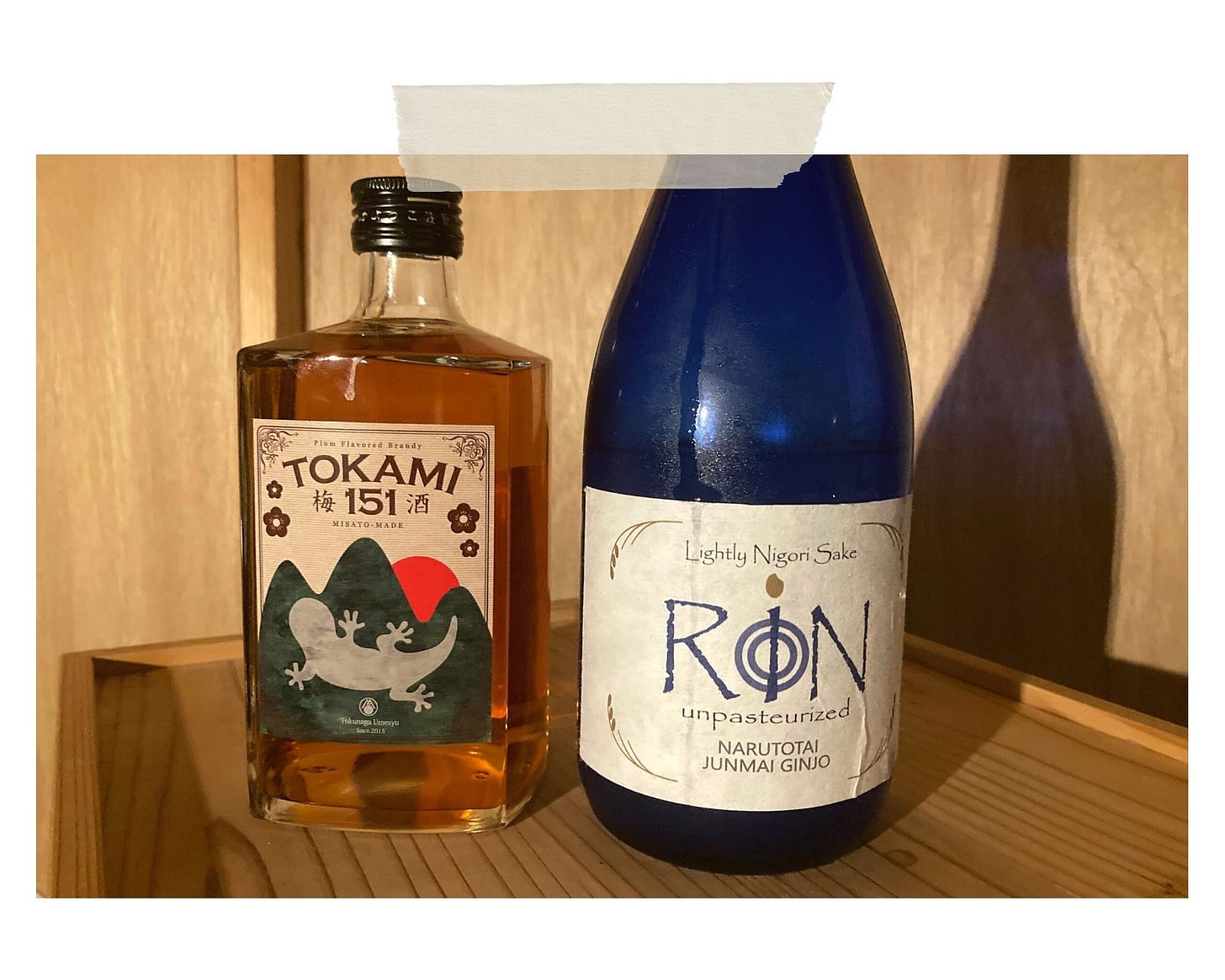Hello reader, thanks for being here! I’m Kana and this is the (normally) Sunday edition of Tending Gardens, which you can read about here.
If you like it and want more like it in your inbox, consider subscribing.
Happy first of March! I realize that it’s Monday and not Sunday. I normally write and publish on Sunday’s but, hey, we’re all human. Thank you for understanding.
have you heard of Tokushima?
Kamikatsu (where I’m living) is located in the prefecture of Tokushima.
Tokushima is quite an unpopular prefecture, often ranking second or third to last on “most attractive prefectures in Japan”. Tokushima is located on Shikoku Island and it’s one of the five main islands of Japan, it’s the second-smallest island after Okinawa.
Most Japanese can’t conjure strong or any images when they think about Tokushima, so it’s no surprise that anyone from outside Japan has any idea that Tokushima is a destination (possibly worth visiting). As an indication of the prefectures lack of appeal, Tokushima, compared to all the other prefectures in Japan, also had the lowest number of guests who stayed at accommodations.
Tokushima is most well-known for one of three things: a cultural dance called Awa Odori, a natural phenomenon known as the Naruto whirlpools, and the Sudachi or other citrus fruit.
Simply said, it’s an unpopular place to live and an unknown destination to visit, but for me, coming to Tokushima felt like discovering something overlooked and under-appreciated.
finding community in Tokushima
While I’ve stayed mostly in Kamikatsu village, I’ve also had a chance to see different places in Tokushima. Hiwasa, a sleepy ocean-side town facing the Pacific Ocean, is probably the place I’ve visited the most outside of Kamikatsu. Whenever I visit Hiwsa, I marvel at the contrast between the ocean and mountains—it’s a wonderful feeling.
Community is a hard thing to define, much like the complexity of trying to define ‘home’, it doesn’t fit in a neat package. While Kamikatsu village truly feels like my community because of my connection with the people and the surrounding environment, I also feel belonging to Tokushima.
This week I had a chance to visit a market showcasing local products and discover more of the Tokushima community.
market in the temple
The market was held in a city called Komatsushima, less than 40 mins from Kamikatsu. The market was held in a famous temple that’s a part of the Shikoku Pilgrimage.
Shikoku Island is well-known for the Shikoku Pilgrimage (四国遍路, Shikoku Henro), which is a pilgrimage that connected 88 temples across the island.
Gathered at the market were craftspeople, makers, artisans and small business owners from different places in Tokushima to display their products. Since the market wasn’t very big, I was able to talk with most of the owners and learn more about their work.
Meeting someone and learning about their passion felt so much more than an exchange of money for a good. I realize that we’ve lost these kinds of relationships between the maker and the buyer but these connections help strengthen our sense of community.
My favourite products from the markets included:
Awa Bottle flavoured seasoning and Tokunaga Umeshu Factory umeshu.
Awa Bottle was jointly established by 12 restaurant owners in Tokushima. The team works together to develop their own recipes and use only products from Tokushima. Interesting flavours include local specialities like seaweed, seafood, and vegetables like renkon (lotus root).
Tokunaga Umeshu Factory creates umeshu, which is a Japanese liqueur made with plums. At the market, I learned about a place called Mistao that is famous for making umeshu. Misato is designated as a special zone for plum wine. I usually find the drink too sweet. But Tokunaga was selling an umeshu with a brandy base that made it an astonishingly balanced drink.
Besides sudachi there are many more local flavours and foods!
I also purchased a copper ring from a local metalsmith, a bottle of nigorizake, a type of sake produced by 200-year-old sake brewery, and handmade baked sweets from Tokushima’s oldest coffee store and roastery, Ikari-ya (いかりや珈琲店).
Ikari in Japanese means anchor. It’s fitting that the coffee shop chose that name because I think our community can be an anchor—a grounding foundation and home base.
While there seem to only be a couple of things that Tokushima is known for, there is so much more that it’s not known for. I was reminded that discovering local is incredibly rewarding. There's something so special about the untangible warmth of knowing the people your buying from.
"Community – meaning for me 'nurturing human connection' — is our survival. We humans wither outside of community. It isn’t a luxury, a nice thing; community is essential to our well being."- Frances Moore Lappe
I think one of the most important things in our world is a strong sense of community. Community is about finding each other and the place(s) we call home. There are many ways to strengthen community and one very easy way is buying local.
Thank you for being here with me this week! Thank you for your patience with the one-day late newsletter. Have a wonderful week and month.
Take care,
Kana
I’d love for you to think of me as your penpal—sharing a note from a tiny village in Japan. With Tending Gardens, I want to bring you a small joy in the form of a newsletter. If you like it and want more like it in your inbox, consider subscribing.










